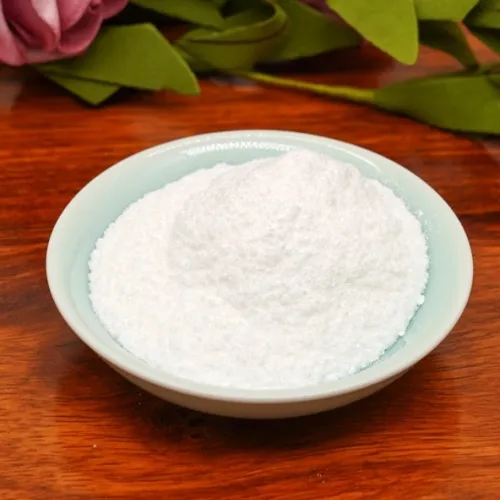Warning: Undefined array key "title" in /home/www/wwwroot/HTML/www.exportstart.com/wp-content/themes/1198/header.php on line 6
Warning: Undefined array key "file" in /home/www/wwwroot/HTML/www.exportstart.com/wp-content/themes/1198/header.php on line 7
Warning: Undefined array key "title" in /home/www/wwwroot/HTML/www.exportstart.com/wp-content/themes/1198/header.php on line 7
Warning: Undefined array key "title" in /home/www/wwwroot/HTML/www.exportstart.com/wp-content/themes/1198/header.php on line 7
- Afrikaans
- Albanian
- Amharic
- Arabic
- Armenian
- Azerbaijani
- Basque
- Belarusian
- Bengali
- Bosnian
- Bulgarian
- Catalan
- Cebuano
- China
- China (Taiwan)
- Corsican
- Croatian
- Czech
- Danish
- Dutch
- English
- Esperanto
- Estonian
- Finnish
- French
- Frisian
- Galician
- Georgian
- German
- Greek
- Gujarati
- Haitian Creole
- hausa
- hawaiian
- Hebrew
- Hindi
- Miao
- Hungarian
- Icelandic
- igbo
- Indonesian
- irish
- Italian
- Japanese
- Javanese
- Kannada
- kazakh
- Khmer
- Rwandese
- Korean
- Kurdish
- Kyrgyz
- Lao
- Latin
- Latvian
- Lithuanian
- Luxembourgish
- Macedonian
- Malgashi
- Malay
- Malayalam
- Maltese
- Maori
- Marathi
- Mongolian
- Myanmar
- Nepali
- Norwegian
- Norwegian
- Occitan
- Pashto
- Persian
- Polish
- Portuguese
- Punjabi
- Romanian
- Russian
- Samoan
- Scottish Gaelic
- Serbian
- Sesotho
- Shona
- Sindhi
- Sinhala
- Slovak
- Slovenian
- Somali
- Spanish
- Sundanese
- Swahili
- Swedish
- Tagalog
- Tajik
- Tamil
- Tatar
- Telugu
- Thai
- Turkish
- Turkmen
- Ukrainian
- Urdu
- Uighur
- Uzbek
- Vietnamese
- Welsh
- Bantu
- Yiddish
- Yoruba
- Zulu
יול . 31, 2024 23:11 Back to list
Understanding Aspartame as an Equal Alternative to NutraSweet in Sugar-Free Products and Its Uses
Aspartame and Equal A Closer Look at NutraSweet
Aspartame, a low-calorie sweetener, has been a subject of extensive debate and discussion since its introduction to the market in the 1980s. Commonly found under brand names like Equal and NutraSweet, aspartame provides a sugar-like taste without the accompanying calories of traditional sugar, making it a popular choice for those looking to reduce their caloric intake or manage their weight.
What is Aspartame?
Aspartame is a dipeptide methyl ester, composed of phenylalanine, aspartic acid, and methanol. When consumed, it is broken down into its constituent amino acids and methanol, all of which are naturally present in food. Aspartame is about 200 times sweeter than sucrose (table sugar), meaning that only a small amount is needed to achieve the same level of sweetness. This characteristic has made it a favored sweetener in various products, notably diet sodas, sugar-free gum, and numerous low-calorie desserts.
Health Considerations
One of the most controversial topics surrounding aspartame is its safety. In the years following its approval by the U.S. Food and Drug Administration (FDA), numerous studies have been conducted to assess any potential health risks associated with its consumption. The FDA has established an acceptable daily intake (ADI) of aspartame at 50 milligrams per kilogram of body weight, which is significantly higher than what most individuals would consume in a day. Despite this, reports of adverse effects—ranging from headaches to more severe reactions—have led to skepticism among certain consumers.
One of the significant concerns is its potential association with phenylketonuria (PKU), a rare genetic disorder in which the body cannot properly metabolize phenylalanine, one of aspartame's components. For individuals with PKU, high levels of phenylalanine can lead to serious health complications, which is why products containing aspartame carry a warning label.
aspartame equal nutrasweet

However, regulatory agencies, including the World Health Organization (WHO) and the European Food Safety Authority (EFSA), continue to uphold its safety for the general population. Moreover, numerous scientific reviews have found no conclusive evidence linking aspartame to cancer, neurological disorders, or other severe health implications, suggesting that moderate consumption is safe for most.
Aspartame in the Market
As a result of its favorable sensory profile and low calorie content, aspartame is a staple in many food and beverage formulations. Brands like Equal and NutraSweet harness its unique properties to cater to health-conscious consumers. Equal, for example, is often found in tabletop sweeteners, allowing individuals to add sweetness to their beverages without the calories associated with sugar. NutraSweet, on the other hand, has found its way into various processed foods, providing manufacturers a way to reduce sugar content while maintaining flavor.
The Future of Aspartame
As public interest in health and wellness continues to rise, the demand for low-calorie sweeteners like aspartame is likely to persist. However, with the growing market of natural sweeteners, such as stevia and monk fruit extract, aspartame faces increasing competition. Consumers are becoming more inclined toward natural alternatives, which presents challenges for synthetic sweeteners.
In conclusion, aspartame, known widely through products like Equal and NutraSweet, serves a crucial role in the food and beverage industry by offering a low-calorie alternative to sugar. While concerns surrounding its safety persist, regulatory bodies have deemed it safe for consumption. As the landscape of sweeteners evolves, it will be interesting to see how aspartame adapts to changes in consumer preferences and continues to meet the demands of a health-focused audience.
Latest news
-
Certifications for Vegetarian and Xanthan Gum Vegetarian
NewsJun.17,2025
-
Sustainability Trends Reshaping the SLES N70 Market
NewsJun.17,2025
-
Propylene Glycol Use in Vaccines: Balancing Function and Perception
NewsJun.17,2025
-
Petroleum Jelly in Skincare: Balancing Benefits and Backlash
NewsJun.17,2025
-
Energy Price Volatility and Ripple Effect on Caprolactam Markets
NewsJun.17,2025
-
Spectroscopic Techniques for Adipic Acid Molecular Weight
NewsJun.17,2025

